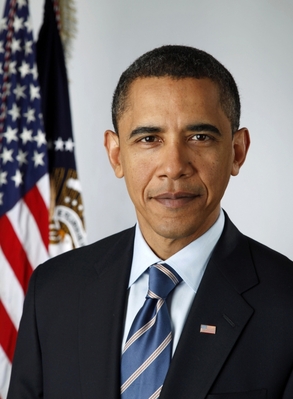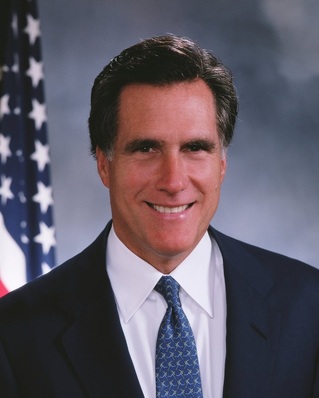Height
The tallest president we've ever had was Abraham Lincoln staring down the rest of us mortals at 6 foot 4 inches tall. The shortest was James Madison at 5'4".
Do taller candidates have the advantage?
Overall the taller presidential candidate has won 53% of the elections since elections began taking place some 200 years ago. Doesn't seem like a telling statistic until we begin looking more closely at the data:
The winner of the popular, rather than the electoral vote, won 59% of the time. Now take into consideration that there was a period of years in our history that we didn't have television which made it more difficult to tell what the candidates looked like.
From 1789 to 1924 the shorter candidate won 15 elections while the taller candidates won 11. Then beginning in 1900, the taller candidate began winning at about a 73% clip.
When television burst onto the seen in the 1950's, the taller candidate went virtually undefeated until George W. Bush won twice. But the tall guy got back in the saddle in 2008 with 6'1" Barak Obama's victory over 5'9" John McCain. Being able to see our candidates in action brought a whole new dimension to political races.
For reference, since 1952 (when television in the United States gained a 56% adoption rate in households) the average presidential winner has been 184 centimeters on average, or a shade over 6 feet tall. The average height in males in the general population of the United States is 5'9". The average American male 6 foot tall or taller only comprises about 10% of the population.
So if you're betting on the presidential winner and only knew their height, you would be beating the house quite regularly by picking whomever is the taller candidate. You will rake in the gambling cash as well by making similar wagers on Fortune 500 CEO's who share presidential candidates height advantages.
Beauty
Several silly studies have shown that in addition to the taller candidate being the predominant victor, the more attractive candidate will often times emerge the victor as well.
Of course we could say that beauty is in the eye of the beholder, and that someone who is attractive to one person may not be attractive to another, but that is why we have statistics to use as a tool. We can overcome perceived subjectivity by asking stratified random samples of the population the same question over the way they perceive something, and see if there is statistical significance in their answers.
The most recent funny social study was recently published in the venerable journal Science and asked children ages 5-13 to vote for who should be "captain of their ship" by showing them pictures of recent political candidates. The children were not able to gather any other information and were only allowed the use of their eyes to once-over the pictures they were shown.
Remarkably, the children were able to predict the actual winners of the elections at a clip that far exceeded statistical significance, having only been able to use what the candidates looked like as an evaluation tool.
So for males, the man with the square jaw, the deep voice, the thick hair, the symmetrical facial features, and the lowered eyebrows will be chosen over the competing male who lacks these features.
Nerves wracked yet?
Why Do We Do This?
Evolutionarily the easy answer is because for hundreds of thousands of years it made sense to pick our leaders in this way. When we were sitting around campfires wondering when the proverbial Wutang clan was going to attack, we were more than a little extra confident about our chances if we knew that the leader of our pack was tall, strong, and good looking.
If he was tall he had the reach advantage in combat, if he was strong he could hit the hardest, and if he was good looking we know now after years and years of social and bio research studies that the more attractive person, all things being equal, is going to have a statistically significant health and reproductive advantage.
So it made sense for us to pick the tall, dark, and handsome fellow because if the leader of the other pack was shorter, fairer, and less handsome, our leader was more likely to be able to club their leader to the ground. Which meant we got the spoils!
Similarly, we see this characteristic of survival adaptation shine through in how we pick our mates as well. We are unconsciously (and most times very consciously) attracted to and try to mate with the most attractive people we can because biologically this will give us the best chance of passing on our genes to the next generation, ensuring that our echoes in the halls of eternity are increased.
What Can We Do?
As Aristotle taught us thousands of years ago, what separates man from the beasts is our reason, or ability thereof. So when picking politicians, we encourage people to try to find out the most information they can about the candidates so that they can make a more informed (and intelligent) decision.
We must be careful, however, that we obtain our information from a variety of sources. No matter your political orientation, it is always advisable to read, listen to, and watch the opinions of leaders from all political parties and ideologies. Making an effort to hear what other people have to say, even if you do not agree with them, will give you a weighty advantage over those who make their choices based on more superficial data.
Participating in the political process is a part of our humanity that can be the best of what the human condition has to offer: serving our fellow humans. Social study after study tells us that happiness and life satisfaction are strengthened exponentially when we give our time in an effort to serve others.
So keep it civil out there, use your uniquely human reasoning capacities, and remember that being a servant to other members of humanity is your highest calling, and those that choose to serve in public office are doing so because they believe that their lives are best spent in service to others. Think twice before you attempt to demonize someone with whom you disagree.
Pursuit of Happiness
You can follow us at @POHClinicBTGS



 RSS Feed
RSS Feed
